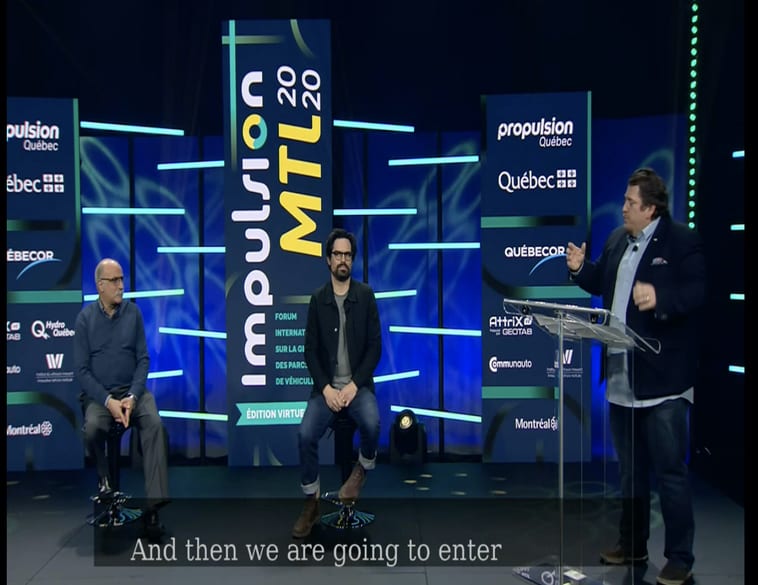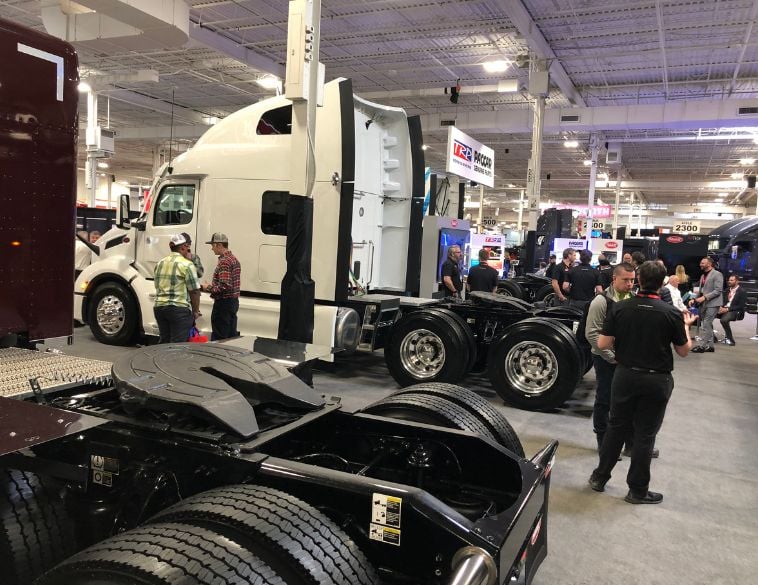At the Impulsion MTL meeting on 16 March, a panel of experts presented several innovative scenarios for last-mile delivery.
Urban delivery is a challenge for companies that want to get goods quickly to their customers. With the explosion in demand due to the pandemic, these companies are coming up with innovative solutions to deliver on time.
At Purolator, Khelil Khelil, Research & Development Manager, points out that the proportion of business-to-business (B2B) deliveries that represented 80% of volumes before the pandemic is now shared 50% between businesses and consumers.
“For us, the changes imposed by COVID have been positive. We have been able to work with new transport partners. For example, a year ago we would never have thought of the cargo bike solution that we have been forced to try in the last few months,” he said.
Getting trucks out of the city
Khelil now claims that this mode of transport in urban areas does the same job as a truck, both in terms of volumes delivered and time. “In fact, our customers are pleasantly surprised to see us adopt an electric solution.”
Plus, some of these customers are starting to ask for green deliveries. He believes that public authorities need to facilitate the implementation of these solutions in cities.
The researcher also points out the testing of tracking robots that accompany the delivery drivers on the last leg of the trip to the customer.
Baptiste Gaertner of Decathlon Canada, a European sports equipment retailer with seven shops in eastern Canada, including one in Montreal, explained that this shop has become a mini-warehouse from which deliveries are made to customers who have made purchases online.
“Customers in the urban area of Montreal can opt for a green delivery, made by bicycle from this warehouse. But if the customer is concerned about delays, the option of delivery by truck is always available.” It will even be possible to show customers the amount of GHGs saved by the green choice.
Growing solutions
For delivery fleet managers, several solutions are currently being developed. This is the case with Courant Plus, for example, a Montreal-based firm that offers only green delivery solutions, by bicycle or by all-electric trucks.
“We need to rethink the logistics of last-mile delivery, says Khelil. We need to rethink the networks but also the vehicles used. The electric bicycle, for example, capable of carrying 400 pounds, has proven itself twelve months a year. And even in the middle of a snowstorm, we have seen that the bike is much more versatile.”
As far as networks are concerned, Khelil says that trucks could supply drop-off points in the city where delivery people on bicycles would pick up the packages.
Autonomy
The question of the electric vehicles’ range, whether they are cargo bikes, small trucks or their full-size equivalent, was also raised. It was agreed that manufacturers are constantly proposing improvements in this area.
The company CAPSolar, represented by its co-founder Samy Benhamza at the discussion, explained the solar panel technology it has developed to increase the range of small electric vehicles.
Reinventing delivery logistics also means thinking outside the box. To illustrate this, Khelil explained a project in Toronto where the regional train from the airport to the city centre would be used to transport parcels during off-peak hours.
This formula, inspired by successful experiences in Europe, could also be envisioned for the Montreal REM, which will also link the city centre to the airport.
All this to reduce the number of trucks that clog up urban centres.



